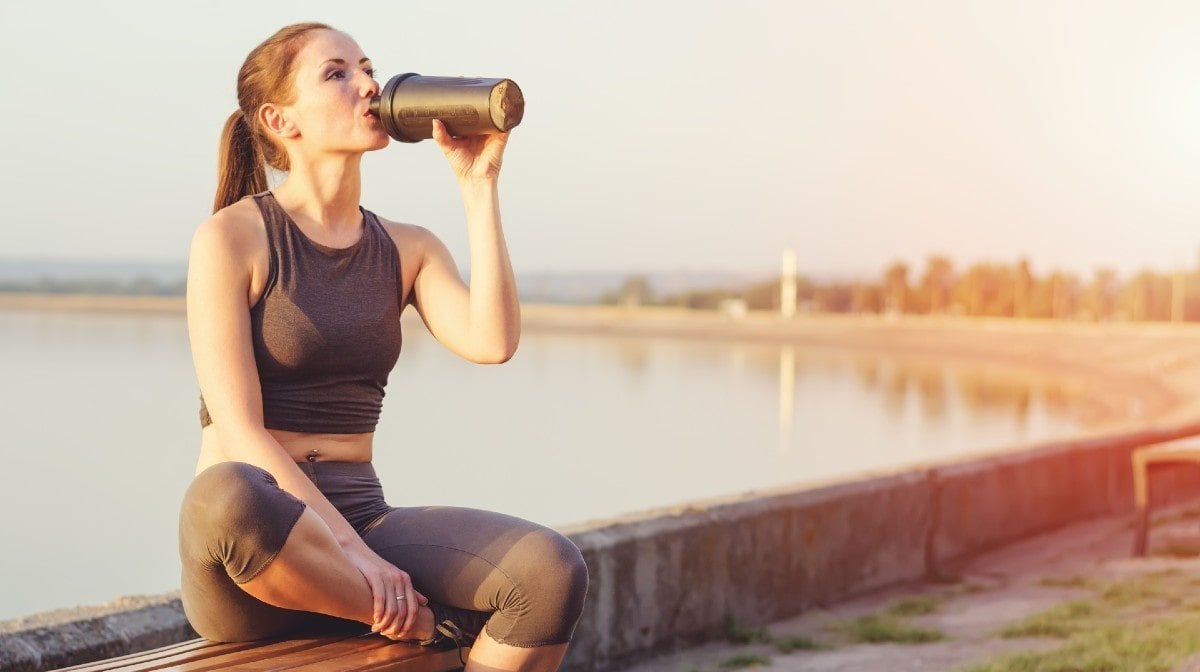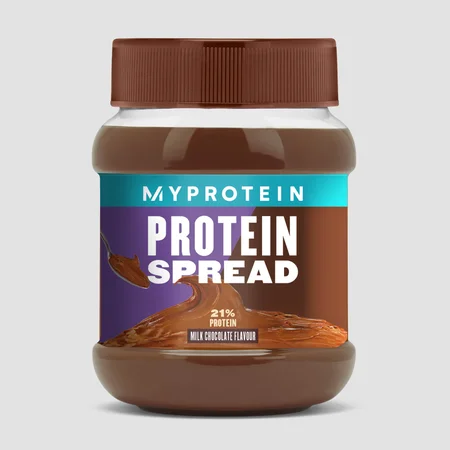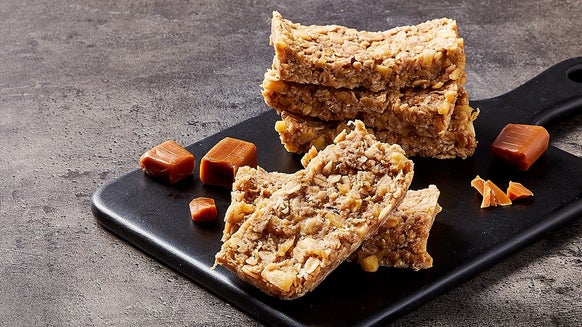Protein Intake for Women | How Much Should You be Getting per Day?

Protein is a key macronutrient for overall health, and becomes even more important for athletes and those who like to hit the gym. While many foods are sources of protein, supplements are another way to meet your protein goals. Women's protein needs change throughout the lifespan, especially if training, pregnant, or breastfeeding, the average woman needs about 0.8g of protein per kilogram of bodyweight each day.
- What is protein?
- Why do we need protein?
- How does protein benefit women?
- How much protein do you need?
- What are the best protein sources?

What is protein?
Protein is one of the three macronutrients - the other two are carbohydrates and fat. Macronutrients are essential to human health and contribute energy to our diets in the form of calories. Protein contains four calories per gram.
Proteins are made up of 20 smaller building blocks called amino acids. Different types of proteins contain different combinations of amino acids and play varying roles in the body.
Why do we need protein?
Proteins are present all throughout the cells in our bodies and are necessary not only for growth and development, but also for our body’s daily tasks. Our body depends on protein for many tasks, like adequate flow of blood and oxygen through the body, creating enzymes that digest and help absorb our foods, and for regulating our hormone levels.
When we exercise and push our muscles to the limit, we cause tiny microtears in the muscle tissue. To repair and grow, our muscles require protein from our diet. Similarly, protein is a key requirement for healing after an injury or surgery.
How does protein benefit women?
Women’s bodies naturally have a lower percentage of lean mass and more fat mass than men; boosting protein intake can help protect the lean mass even if you are cutting back on calories or working hard in the gym.
Protein is a key nutrient to keep our bodies healthy for pregnancy and breastfeeding, and keeping our muscles strong as we age also helps to protect our bones.1

How much protein do you need?
Protein for weight loss
While 0.8g per kg body weight is adequate protein for a sedentary woman, research shows that higher protein in takes between
Satisfying, higher protein meals can also reduce the likelihood of overeating later in the day.1
Remember, a negative calorie balance is the most important factor for losing weight; adding in a higher percentage of calories as protein will protect your lean mass and help target fat loss.
Protein for maintenance
If you are trying to maintain your weight and muscle mass,
Protein for muscle gain
While similar to the recommendations for weight loss, the recommendations for muscle gain are to consume
What are the best protein sources?
The best animal product protein sources are chicken, pork, fish, beef, eggs, and dairy products. The best plant-based protein sources are beans, nuts, seeds, and legumes. The chart below sorts the best sources of protein per 100g.
| Food | Protein per 100g2 |
| Chicken breast | 31g |
| Turkey breast | 30g |
| Pork chops | 30g |
| Mackerel | 26g |
| Ground beef | 26g |
| Lamb chops | 26g |
| Sardines | 25g |
| Cheddar cheese | 25g |
| Peanuts | 24g |
| Tuna | 24g |
| Salmon | 22g |
| Almonds | 21g |
| Tofu | 16g |
| Chia seeds | 16g |
| Whole eggs | 12g |
| Soy beans | 11g |
| Egg whites | 11g |
| Greek yogurt | 6g |
| Skim milk | 4g |
Take Home Message
While the average sedentary woman needs around 50 grams of protein per day, this varies greatly based on your age, lifestyle, body size and type, and your exercise goals. Diets with greater protein intake can support weight loss, preserving and gaining muscle mass, and overall health.
READ THESE NEXT:

Claire is a Registered Dietitian through the Academy of Nutrition and Dietetics and a board-certified Health and Wellness Coach through the International Consortium for Health and Wellness Coaching. She has a Bachelor of Science in Biology and a Master’s degree in Clinical Dietetics and Nutrition from the University of Pittsburgh.
Talking and writing about food and fitness is at the heart of Claire’s ethos as she loves to use her experience to help others meet their health and wellness goals.
Claire is also a certified indoor cycling instructor and loves the mental and physical boost she gets from regular runs and yoga classes. When she’s not keeping fit herself, she’s cheering on her hometown’s sports teams in Pittsburgh, or cooking for her family in the kitchen.
Find out more about Claire’s experience here.






